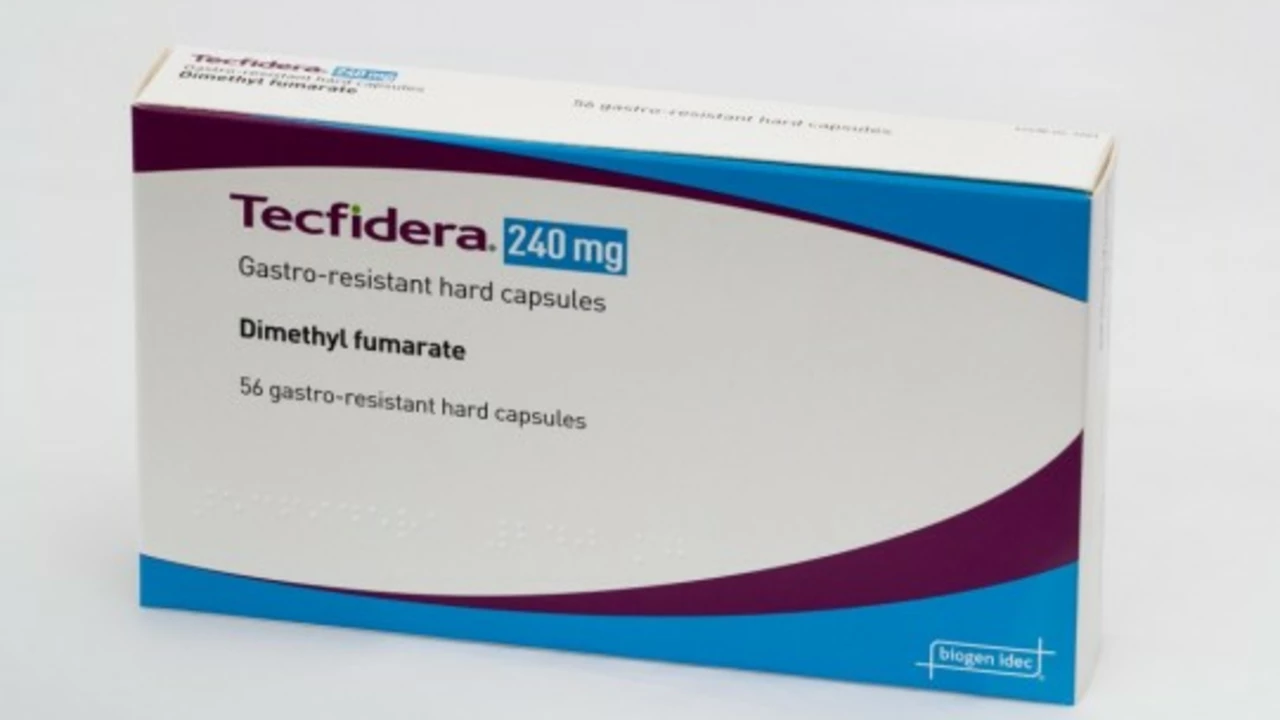Dimethyl Fumarate — What You Need to Know Fast
Dimethyl fumarate is a prescription medicine most commonly used to treat relapsing forms of multiple sclerosis (MS) and, in some countries, psoriasis. If your doctor suggested it, you’re probably wondering what to expect. Here’s a straightforward, practical rundown you can use at appointments or when shopping for care.
How it works and how it's given
This drug works by calming parts of the immune system that attack the nervous system in MS. You usually start on a lower dose for the first week or so to reduce side effects, then move to a maintenance dose. A common schedule for Tecfidera (a brand name) is 120 mg twice on week one, then 240 mg twice daily after that. Always follow the exact instructions your prescriber gives.
What to expect: common effects and simple fixes
Flushing and stomach upset are the two complaints people report most often. Flushing feels like warmth and redness, usually soon after taking a dose. Eating a meal or snack with the pill helps. Some people find taking a low-dose aspirin (ask your doctor first) reduces flushing.
For nausea, bloating, or diarrhea, try taking the pill with food and splitting activities so you’re near home for a few days while you adjust. Symptoms often ease over 2–4 weeks.
There are more serious risks you should know about. Dimethyl fumarate can lower white blood cell counts (lymphopenia). That raises infection risk and, rarely, has been linked to a serious brain infection called PML. Doctors will check your blood (CBC) before starting and then periodically—usually every 3–6 months early on, then at least every 6–12 months.
Tell your clinician right away if you have signs of infection, new weakness, vision changes, trouble speaking, or confusion. Also mention current or recent infections, planned vaccines (avoid live vaccines on treatment), pregnancy plans, and any other medicines you take.
Drug interactions are limited but real: avoid live vaccines while on treatment and be cautious with other immune-suppressing meds. Your MS team will coordinate any changes.
Pregnancy and breastfeeding: clinicians typically recommend effective birth control during treatment and discuss stopping the drug if you plan to become pregnant. If you’re breastfeeding, talk to your doctor—options depend on your situation.
Buying tips: dimethyl fumarate is prescription-only. Use a licensed pharmacy—either local or a reputable online pharmacy that requires a valid prescription and shows clear credentials. Avoid sellers that skip prescriptions or offer suspiciously low prices without paperwork.
Quick checklist for your visit: bring a list of all meds, ask about blood test schedule, discuss vaccine timing, review pregnancy plans, and ask how to handle side effects at home. Those few questions make your treatment safer and easier to live with.
If you want, I can help draft questions to bring to your neurologist or point you to reputable patient resources and blood-test schedules. Just tell me what you need.





